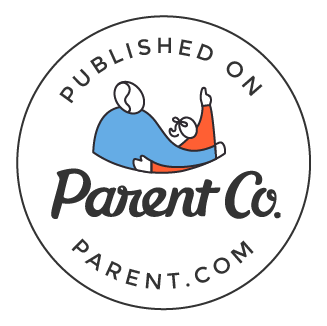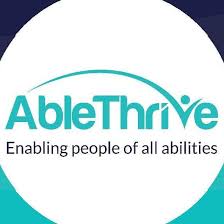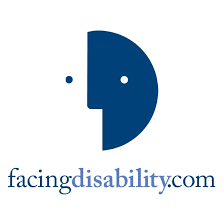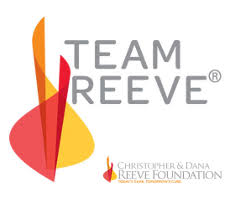|
John and I traveled for a day trip to Newport, Rhode Island for the first time. The landscape from the cliff walk brought the fjords of Norway to mind, a fusion of rippling water and majestic rock, oblivious to the passage of time.
Ben applied to several graduate schools across the country for a master’s program in literature. He decided to attend wherever he received the most financial aid. With acceptances in hand, Brandeis University won in Waltham, Massachusetts—the same city where John and I lived. All three of my kids would live close to us for the next school year. My doctor referred me to a specialist when the headache spiked, and my left arm prickled and hurt. I made an appointment with a physiatrist, a specialist in muscles and rehabilitation. Dr. Ariana Vora at Wellesley’s Spaulding office diagnosed my headache as cervicogenic: pain referred to the head from the cervical spine or soft tissues (or both) within the neck. Complicated by displaced jaw joints, fibromyalgia, and advanced arthritis. A body scan revealed an my unusually high level of arthritis literally everywhere. My neck, left elbow, right knee, and hands bothered me most. I was forty-nine years old, going on ninety. Dr. Vora ordered physical and occupational therapy to focus on my neck muscles in constant spasm. At one session, a patient complained loudly about over-the-counter medicine that completely eliminated her wrist pain because she hated taking pills. Whining about the absence of pain? I’d be happy if mine dropped from constant to sporadic. My physical therapist with daily headaches rolled her eyes at me in solidarity. I tried acupuncture, facet joint injections, and later, botox shots. I also drove to a shop in Brookline where an elderly Chinese man listened to the heartbeat in my wrist and sold me bitter, exotic herbs. Once. Daily exercise, meditating, and holistic approaches tamped down the headache to a lower base level. I appreciated my evolution of sorts: to be able to make time for me and not feel guilty about it. I valued myself more. I no longer thought of myself as weak and flawed for not getting all my ducks in a row. We all lived in the same messy pond, without perfection. I tried not to anticipate or worry about the next headache flare. I finally absorbed the idea of taking care of myself first which allowed me to give to others in a better way. I made extra efforts to connect with friends and family and started a gratitude journal. I had so much to be thankful for. Next: Beth's mosaic of squares! (Would you like to know about my brand-new Struggling with Serendipity book? Please click the links at the top of this webpage. Thanks!)
4 Comments
Beth’s Harvard coach requested that she meet a little girl with a physical disability from a local club team. They swam together twice. Beth dabbled a little in coaching and talked to the girl and her mom over dinner. A Paralympic swimmer in Michigan also asked Beth to mentor a teenage girl with a new spinal cord injury. Ongoing friendships included her first mentee from Seattle who visited Harvard for a college visit almost four years after they began to exchange emails. They met face-to-face for the first time and caught up over lunch in Harvard Square.
Beth’s web of connections kept growing. My new Massachusetts doctor sent me to chronic pain classes at the Benson-Henry Institute for Mind Body Medicine. The institute was founded by Dr. Herbert Benson, the cardiologist who wrote The Relaxation Response. I drove east on Rt. 9 to Roxbury, a suburb of Boston. A nurse led the classes, teaching us about the science of meditation and how those who meditated regularly experienced significant health benefits. My diverse classmates experienced a wide range of medical problems. The nurse encouraged us to accept pain, the same concept that angered me when I first heard it in Ohio. Since then, I had found no cure for my headache. I understood that resisting pain did nothing good. Dr. Benson visited my class and spoke about pain as a benign thing, to separate it from our identities. To enable us to drain its power. To prevent pain from diminishing our experience of life. To make it an inescapable reality more than an obstacle. To make peace with multiple causes of pain, some clear and some not. I tried. I completed homework and daily meditation practice. At our last class, we shared unanimous results. All of us improved, including me, though our actual pain levels stayed the same. What? Across the board, our minute by minute and hour by hour responses to pain improved, enabling us to cope better day to day. The class also helped me gain perspective as I met others with debilitating pain. It could always be worse. Next: “Chomp!” After Brazil, Beth flew into Boston, since our Ohio days were over. She helped me complete her new bedroom with a blue duvet cover and throw pillows. Before her senior year of college began, I often drove her to Harvard's Blodgett pool for workouts, about a half hour drive from our apartment in northwest Waltham. Maria joined Beth at the Bear Hill pool to sunbathe with books and to swim.
John’s change in jobs left us with a one-month gap in our health insurance. He bought coverage through his Ohio retirement at a reasonable cost. Against his advice, I decided to go without health insurance through August to save us several hundred dollars. As luck would have it, I couldn’t stop coughing with a persistent chest cold. I should’ve gone to the doctor. Instead, I waited another week until my new insurance started. A bad idea. I learned a new lesson. My lung capacity diminished with a full-blown, miserable, and intense pneumonia. For the first time, I experienced the anxiety triggered by not breathing easily. Antibiotics had no effect the first two weeks, so a lung doctor added steroids, inhalers, and a different antibiotic. I felt a little better by the end of September, in time for visitors. Still coughing, I assumed that a month of antibiotics had eliminated the possibility of being contagious. My parents arrived for a visit with my niece Meghan and her husband. We walked part of Boston’s Freedom Trail and rode a trolley. When others boarded a boat for a harbor cruise, I shared ice cream with my dad at Legal Seafood near a big aquarium. Maria and Beth visited us at our Waltham apartment for fun family dinners. After the visit, my dad contracted pneumonia—probably from me. He spent a rough week in an Ohio hospital, and I felt awful about it. My pneumonia completely cleared three months later and left me with elevated neck and head pain from the prolonged coughing. Next: A New Treatment! John and I searched for simple, sparse furnishings for our new Massachusetts apartment in many stores. I shopped with Maria, too, and we checked sales and clearance racks for good deals as always. John teased about metal shelving units in all the rooms, and made do with just one in the garage.
We displayed family pictures everywhere. Our furniture matched for the first time, and I got a kick out of shopping for kitchen towels with a red theme. I found some with brightly-colored poppies, complimenting a set of red bowls with white polka dots. Medication kept the lid on my depression, but failed to stop the headache. The pain level cycled, as always. with my heartbeat throbbing in my head during peak times. The base level had continued to increase very gradually since the onset. Even so, I appreciated the fact that the base level of the headache was manageable. I walked up and down Bear Hill for exercise and helped John get his classroom ready. He had extra work to prepare to teach in a new school system in a new state. He reviewed the curriculum, all new to him. He also had to schedule and study for the teaching tests Massachusetts required, despite his National Board Certification and 30 years of experience. I debated about when to apply for a job. John suggested I postpone job applications until after the Beijing Paralympics, a year away. That was an event I wouldn’t miss, and I planned to stay in China for an extended time. We talked to Beth on the phone from her team camp at the Olympic Training Center in Colorado as they prepared for another adventure in another country. Next: Brazil!  (This blog tells my family's story. To see more, click "blog" at the top of this webpage.) Dear Readers: This post is not typical. This is the second (and last) segment about my struggle with depression in Massachusetts. Thanks for following! -Cindy ❤ Five years had passed since Beth’s spinal cord injury and I had so much to be thankful for. I felt loved. I usually focused on gratitude and had no reason to feel despair. But when I gradually discontinued a medication, there it was, unbidden. With this sudden new depression, life became overwhelming. I thought about Beth not needing me in Cambridge for the next school year. The idea of her at Harvard and me in Ohio triggered old fears of health risks. How could I be in another state? What about pneumonia? What if a car hit her when she crossed the congested streets? What if she picked up a superbug virus from her chair wheels and antibiotics failed? With worst-case scenarios swarming in my head, I rode the T back to Harvard Square and hurried to Beth’s car, relieved not to see anyone I knew on the way. I drove to Fresh Pond in western Cambridge to one of the cheapest hotels in the area. Still expensive at eighty dollars a night. In my hotel room, sleep eluded me. With a searing headache, I thought about going to a hospital, but I wanted to hide this from my family. Beth was across town, but I refused to cry on her shoulder. I especially needed to call John. However, I was determined not to worry the people I loved the most. I dozed toward morning. It was my day off from the personal care assistant job, thankfully. In the light of day, it seemed obvious that body chemistry and chronic pain played big roles in my depression. Thoroughly humbled, I called my Ohio doctor’s office for a new Zoloft prescription. I braced myself for uncomfortable hours and days until the medicine helped again. I called off work at the Coop and stayed in the hotel room with the television and lights off until checkout time. I couldn’t justify another expensive hotel night, but after I checked out, I had nowhere to go. My friend Bonnie worked second shift and I couldn’t move in to her apartment until 9:30 p.m. Too restless and teary to sit or read or write, I wandered through the afternoon and evening. No longer in denial about depression, and stuck with a dependency to Zoloft. At the same time, I made peace with the fact that I needed medicine to function. I rewarded myself for not spending another night in a hotel by purchasing a new Life is Good shirt with a peace sign. The company’s philanthropy resonated with me, as well as their motto. “Life is not perfect. Life is not easy. Life is Good.” Amen. Next: Home Sweet Home! 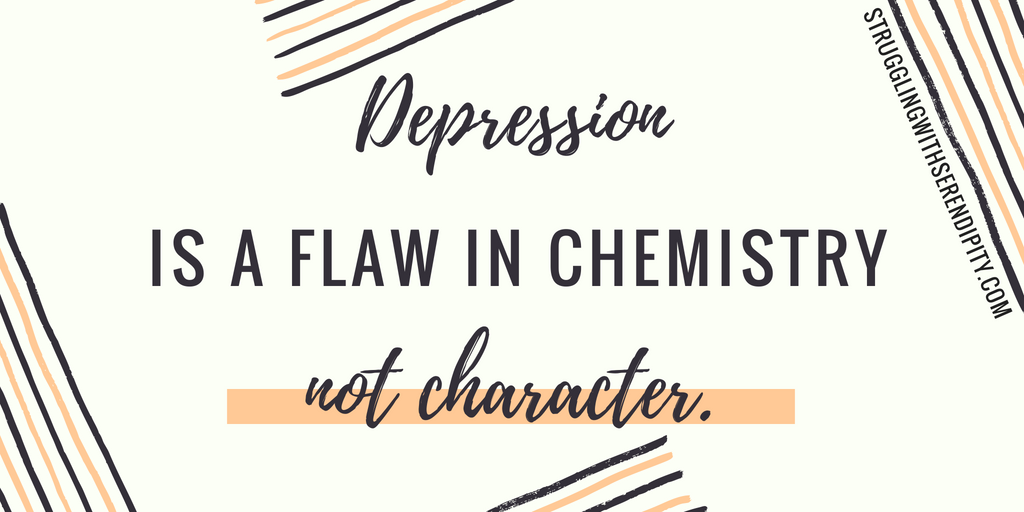 (This blog tells my family's story. To see more, click "blog" at the top of this webpage.) Dear Readers: This post is not typical. This is about my struggle with depression in Massachusetts. Thanks for following! -Cindy ❤ I usually was not an excessive worrier. The crippling anxiety I experienced earlier, after Beth’s spinal cord injury, had been triggered by guilt and deadly health risks. When I lived near Harvard, I worried only a bit about all my children, and general things like them finding meaningful work and a loving partner. Maria and Ben had significant others; however, my youngest felt no rush to date. She had a very full plate. Both of my girls thought it appalling that I had married one week before my nineteenth birthday, much too young in their minds. We had no way of knowing that Beth’s first steady boyfriend lived across Harvard Yard in another freshman dorm, or that they would not meet until graduate school in another state. At the end of the school year, my mood plummeted quickly after I gradually discontinued Zoloft. I banked on my body adjusting over time, and it did, but not in the direction I hoped. At the same time, my roommate Janet left for Ohio to be married, which meant I needed to move out of the apartment before her honeymoon ended. For the month until the school year finished, when I would drive home to Ohio with Beth, I arranged to sleep on a sofa bed in a Coop friend’s apartment north of campus. On my moving day, I woke up to an alarming new low, exacerbated by a piercing, throbbing headache and a flare of intense fibromyalgia. I relied daily on Celebrex, an anti-inflammatory medicine, to reduce the headache. Unfortunately, the maximum dose couldn’t reach this higher level. Over-the-counter pain drugs didn’t work for me, and I had a bad reaction to opiates, so there were no good pain options. Deep sadness stung, mentally and physically. Every small thing seemed much too difficult. I forced myself to go through the motions for my morning personal care assistant job, barely saying a word and wiping tears away discreetly. After, I trudged through the thirty-minute walk from the Quad to my apartment on auto drive. I passed through the tiny apartment for the last time to take the garbage out, my steps creaking on the uneven floor. Janet bought my bed, and I left her my lamp and the bedding. When I pushed my key under Janet’s door, I carried my duffel, the same one I moved in with eight months earlier. I left the duffel in the trunk of the car. I had the day off from the Coop and planned to move into my temporary housing that evening. I stood at a corner, overwhelmed by sadness and the simple choice of which street to cross. And the idea of moving to a friend’s apartment where I’d never been before. The sunny day colored in despair, carrying me back to my old guilt and regret. I couldn’t stop crying. I felt weak and worthless. Frustrated and embarrassed, I decided not to reach out to John, or anyone. I didn’t have anywhere to go, no bed to curl up on, so I rode the T into Boston with the plan of hiding in a movie theater while I regained control. Instead, I paced in the expanse of the Boston Common, trying to calm down enough to call my friend Bonnie. I told her I’d move in the next day instead of that evening. I walked aimlessly, not caring how I looked. Far from home, I didn't know anyone in Boston. Even in tears, I certainly wasn’t the strangest sight in the Common on that or any other day. Next: Depression and Hope!  (This blog tells my family's story. To see more, click "blog" at the top of this webpage.) Managing the group home escalated my headache with less sleep and a full dance card. The base level of pain had gradually increased over a dozen years. How bad would it get? Over-the-counter medications didn’t make a dent. When I tried an opiate after surgery, I felt worse, not better. A prescription anti-inflammatory muted the headache—and increased my stroke risk. I read a study about how the brain gets wired to frequent pain signals, making it difficult to break the cycle. Obviously. I made a concerted effort to stay positive and suppress my fears of higher pain. At home, I kept up with Beth and drove her to swim practices on my evenings off. She took on new roles, unafraid, including the top job of news editor of the school newspaper, The Tiffinian. A feature in the paper titled Senior Superlatives reported on a class election that voted her most likely to be President and most likely to be rich. “I didn't want both so I gave the rich title away,” Beth said, with a laugh. The votes of her classmates also put her on the Homecoming Court, surprising her. “I was shy in high school,” Beth said. “I had more fun than most, but I wasn't a cool kid.” The night of the Homecoming football game, the Court arrived at the stadium in convertibles before lining up on the track to be presented to the crowd. A problem we didn’t anticipate handed Beth a rare defeat. “I wheeled myself everywhere, but my escort wanted to push my chair across the field,” she said, while also admitting the bumpy turf was difficult. It was a standoff on the 50-yard line, her escort equally as stubborn as Beth. She reluctantly gave in. “But I kept my hands on the wheels and pushed myself at the same time!” When the pageantry ended, Beth sat with her best friends on the platform in the student section to watch the game. Ellen and Lizzy gave her a bouquet of flowers and an adorable present. They made a Build-A-Bear and dressed it up with a fancy dress, homecoming crown, magic wand, and queen banner. They had been sure Beth would win. She didn’t, and hadn’t expected to. But... The queen bear was a sweet reminder of friends always in your corner. |
Cindy KolbeSign up for my Just Keep Swimming Newsletter by typing your email address in the box. Thanks!Categories
All
Archives
November 2022
|





 RSS Feed
RSS Feed


